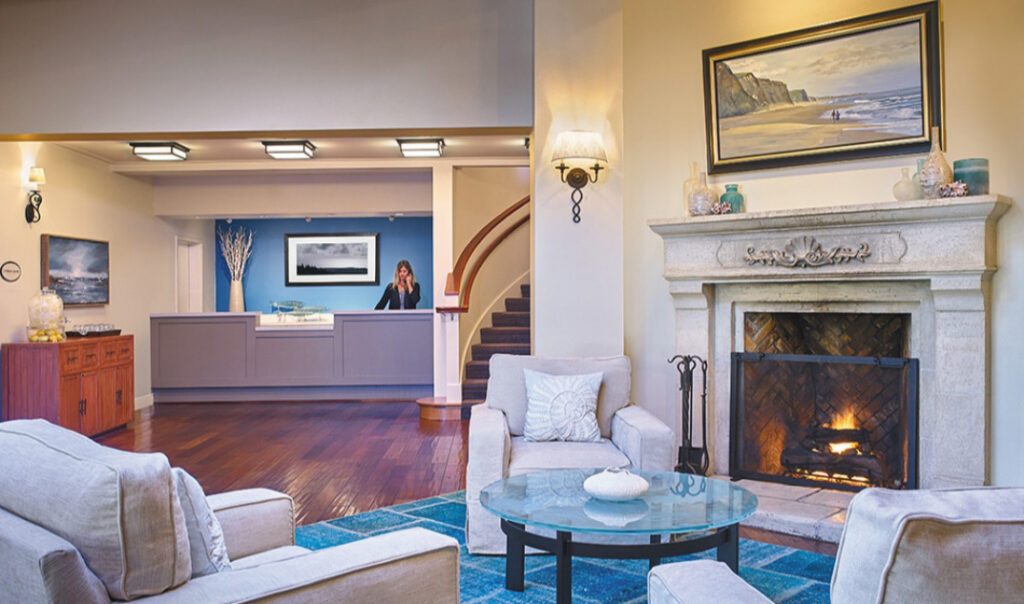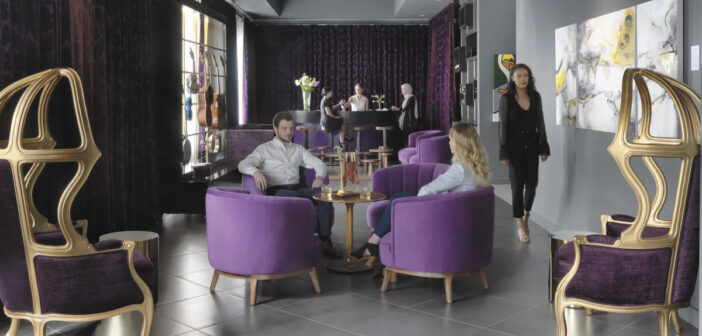How to build for financial success, now and after the pandemic
By Iain Shaw
Retaining a tight, obsessive focus on finances is part of the life of an independent hotelier, but the past year has been unlike any other, even for the most experienced in the industry. And it’s not over, with the uncertainty that characterized 2020 likely to be a constant at least through 2021. We asked industry insiders and experts what independent hoteliers can do to address any financial challenges their properties face in the short term and how independents can build for sustained success after the pandemic.
TRIM THE FAT
Before you do anything else, control what you can. Review everything your hotel is currently doing and look for opportunities to trim any fat. You’ve probably done this multiple times over the past year, but your perspective on some spending items may be different today from where you were last quarter. “Continue doing what so many of us did in 2020,” said Stacey Howlett, general manager at Angad Arts Hotel in St. Louis, MO. “Watch labor very closely, analyze every invoice, make sure you are watching the ROI on every service that is being used.”
As part of this process, Michael Casey, managing partner at Storey Hospitality, which operates five properties in Northern California, recommends reviewing all vendor contracts with a view to renegotiating terms and pricing. “Vendors are fully aware of the challenges facing independent hotels at this time and most – the good ones – are willing to work with properties to ensure strong, long-lasting relationships,” Casey said.

Team members rallying together is one way the Beach House Hotel has stayed afloat during COVID-19. PHOTO COURTESY OF THE BEACH HOUSE HOTEL
BE FLEXIBLE WITH TEAM MEMBERS
Team dynamics are critical to financial success, both in the context of COVID-19 and building for the long term. Don’t forget that every member of your team has experienced extreme stress and likely some degree of burnout over the past year. Whatever you can do to boost morale and keep staff engaged is time well spent. “They have worked hard through an unprecedented year and the staff is the hotel’s most valuable asset,” Howlett said.
Be proactive and flexible to allow team members time and space to recharge. “We’ve all taken our turns hitting the wall,” said Dana Dahl, general manager of the Beach House hotel in Half Moon Bay, CA. At the Beach House, Dahl said team members have rallied and filled in whenever colleagues have needed a break. “When a front desk agent says, ‘I need some time, I need three days off.’
… Okay. So, we all fell in and we do that,” she said.
Dahl also highlighted the importance of independent hoteliers keeping leadership teams intact. During the pandemic, that’s meant having everyone take on a broader range of duties than normal. “To retain them, we’re all doing all the frontline duties,” Dahl said. “I’m working the front desk, my sales manager is handling delivering continental breakfast. We’ve had to modify and furlough certain people, but we’ve also been able to really retain our core management staff, which is hugely important.”
Laura Rose, managing partner at Storey Hospitality, echoed that sentiment. “Our Director of Facilities at the Park James in Menlo Park not only handles the maintenance needs of the property but also helps valet park cars, troubleshoot IT issues, and work front-desk shifts,” Rose said. Cross-training staff members may be a necessity right now, but it also builds a stronger, more cohesive team that will be a long-term boon to your property.
PRESENT AND FUTURE THINKING BALANCE
It’s a tricky balance, but independent hoteliers must walk the line between laser focus on the present moment and having one eye on the future. Johnathan Capps, Vice President of Revenue at Charlestowne Hotels, said it’s important to retain a sense of perspective. For example, working up detailed plans for Cyber Monday 2022 isn’t a good use of time, but independents should be anticipating what business will look like when the pandemic eases.
Don’t think of your hotel’s experiences during the pandemic as an aberration – the changes you’ve made might inform future direction. “What does bringing a full staff look like, and has the pandemic shown you something differently?” Capps said. “Or have you learned something about your hotel, about the demographics or the market segments where you need to now look at leisure differently, or you need to attack the group segment with a salesperson?”
Develop plans for how you are going to approach different phases of recovery. If you suspended certain services or closed facilities during the pandemic, what will be the trigger points for bringing those back? If events and meeting business starts to come back, what parameters will you be operating within? What will you be doing in terms of marketing promotions and ad spend?
Even as you enter a transition to more “normal” business, you may still have to apply certain constraints. Meetings have traditionally been a significant driver of revenue at the Beach House in Half Moon Bay. However, as events begin to trickle back, Dahl said it won’t make business sense to accept every booking request. “There’s a certain profit margin that has to be there for us to be able to open up for the meeting,” she said. “We don’t want to take a group of 10 people just to get some practice. We really need to say okay, when the light switch goes on, then these are the size of groups we need to start with.”
USE DATA AND METRICS
Of course, with so much uncertainty still in the air, figuring out timelines for post-pandemic recovery is largely guesswork. Instead, use data as a guide for when to change gears. Capps said week-to-week fluctuations in business are the best indicator of a real change in the landscape. “Are you seeing a week-to-week build that’s positive momentum?” he said. Use data from before and during the pandemic to benchmark current performance. Customer sentiment surveys can also provide some rough insights, but maintain a degree of healthy skepticism – Capps said survey results don’t necessarily translate into corresponding upswings and dips in business.
External metrics like advertising rates also might provide clues. “When you’re participating in programs out there that are cost per click, and all of a sudden, something that costs $1 per click started moving to $3 and $4, well there’s something that’s driving that data,” he said. “Maybe it’s a false positive, but more often than not, it’s based on a higher level of spending and potentially demand.”

Week-to-week fluctuations in business show hoteliers when they may need to change gears.
PHOTO COURTESY OF CHARLESTOWNE HOTELS
ACT NOW
Everyone is anxious for the pandemic to end, but don’t rest on your laurels playing the waiting game. “We have found that getting creative and doing more, not less, is the only way to create demand,” Laura Rose said. When business travel dried up overnight in Silicon Valley, Storey Hospitality’s Park James Hotel in Menlo Park, CA, drove leisure demand by adding features like live music at mealtimes, outdoor fitness classes, and a curated wine experience led by James Beard Award winner Shelley Lindgren. “We actually ended up improving our property market share over the prior year and our average dinner check by 20 percent!” Rose said.
If you have the funds available, use periods of low occupancy to carry out any necessary refurbishments or renovations. Dahl said the Beach House has carried out a number of upgrades throughout the pandemic, from landscaping projects and painting the building exterior to in-room renovations. “We’re just dipping into every aspect of the guests stay to give improvement,” she said.
Beware getting so caught up in the present moment that you undercut your future financial success. For example, cutting prices to drive occupancy can quickly become a race to the bottom. “Finding the right balance of a slight reduction in rate, and occupancy levels that a reduced staff can service at levels customers still expect, is a delicate art,” Casey said.
TAP INFORMATIONAL AND FINANCIAL RESOURCES
While independent hotels lack the infrastructure and resources that can bolster large chains in a crisis, remember you’re not alone. Make full use of the financial and informational resources available to you. Paycheck Protection Program (PPP) loans have been critical for many of the hoteliers we interviewed, but a number of other common threads came up. At Angad Arts Hotel, Howlett said maintaining strong relationships with local banks and financial institutions has been vital. Networks of industry peers can provide mutual emotional support, as well as arenas for crowdsourcing best practices and picking up on the latest developments. “We all have one thing in common and that is we are all struggling,” Howlett said. “I’ve gotten some great ideas on how to coordinate staffing, sales efforts, and new marketing trend information from colleagues all over the world.”
Lean on your contacts and establish regular points of contact to share tips. Charlestowne Hospitality ran a weekly call for the company’s general managers that allowed leaders to quickly relay insights, protocols, and discoveries with other properties. This meeting rhythm kept the company’s properties moving forward as one. “One of our properties may have done a curbside check-in, and how that was executed, or one of our properties found a non-residue-leaving fogger that sprays a sanitizing chemical throughout the lobby,” Capps said. This model can be applied even by informal groupings of independent hoteliers. You can share without giving away all your secrets.
PLAY TO YOUR STRENGTHS
It’s easy to be envious of the big chains and their corporate offices handing down guidelines and protocols. But finally, don’t forget the advantages that come with independence. “You can morph and change things as it goes,” Dahl said. “We’re accountable to our ownership, they’re not completely hands off and they have their opinions as well. But it does help to be able to work through an issue with your team vs. being told how to do it and putting a square peg in a round hole.”




